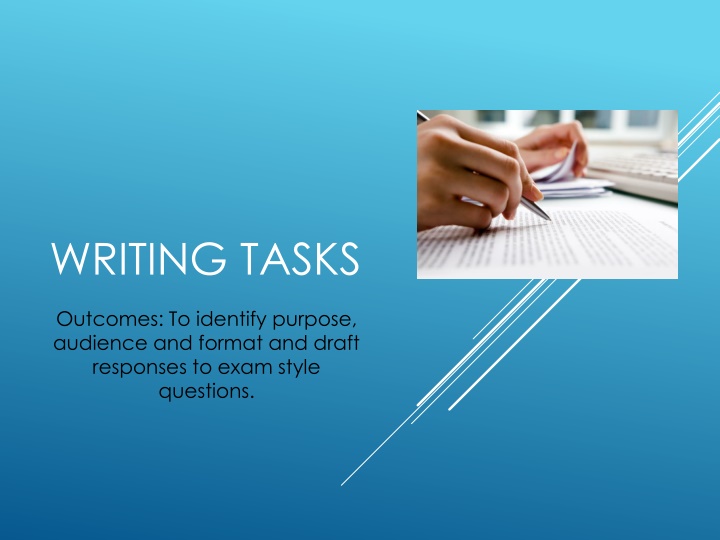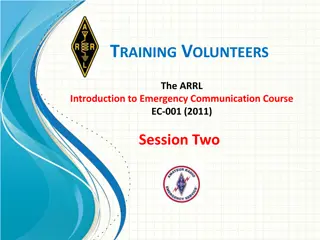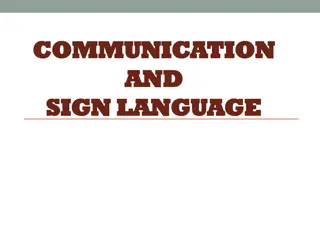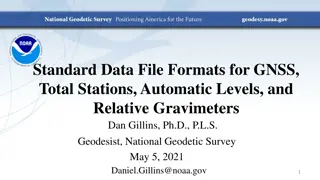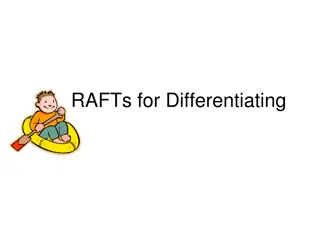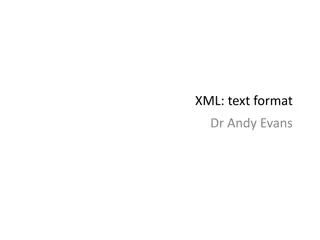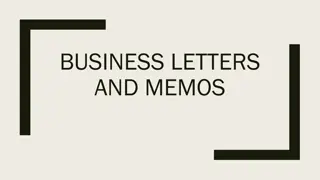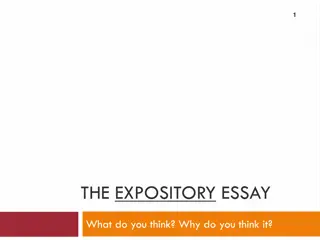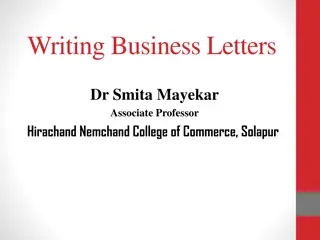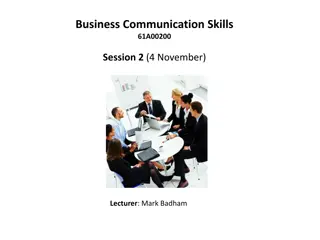Effective Communication in Various Writing Formats
Explore the nuances of writing different formats, such as formal and informal letters, reports, articles, reviews, leaflets, and speeches. Understand the purpose, audience, language, and layout considerations for each type, emphasizing practical examples and exam-style questions. Delve into crafting convincing letters, impactful reports, engaging articles, and persuasive speeches, honing your skills in effective communication.
Uploaded on Nov 26, 2024 | 0 Views
Download Presentation

Please find below an Image/Link to download the presentation.
The content on the website is provided AS IS for your information and personal use only. It may not be sold, licensed, or shared on other websites without obtaining consent from the author.If you encounter any issues during the download, it is possible that the publisher has removed the file from their server.
You are allowed to download the files provided on this website for personal or commercial use, subject to the condition that they are used lawfully. All files are the property of their respective owners.
The content on the website is provided AS IS for your information and personal use only. It may not be sold, licensed, or shared on other websites without obtaining consent from the author.
E N D
Presentation Transcript
WRITING TASKS Outcomes: To identify purpose, audience and format and draft responses to exam style questions.
Formal letter Informal letter Report Article Review Leaflet Speech
PURPOSEWhat is it for? AUDIENCEWho is it for? LANGUAGEWhat language will be used? LAYOUTHow is it set out on the page? What is the PALL of the two tasks? Write a review of your school or college based on your experiences there. Imagine you have relatives living abroad. You have not been in touch for some time but you would like to visit them. Write a letter, which would persuade them to agree to your visit.
Your local area has just been voted the worst place to live in terms of being environmentally friendly. Write a letter to your local newspaper suggesting what you think are the problems and what can be
You have a friend who is thinking of doing a parachute jump for charity. Write to your friend giving your opinions.
Title: This should sum up what the report is about: Introduction: This should summarise: What the report is about. Why you have been asked to write it. How you went about researching it. What your report intends to do. Your school is keen to raise money for extra activities. Write a report for the parent s association saying: 1) what the school needs most urgently; 2) give suggestions as to how the money could be Main Body: This section should contain the findings of your report. Think about including: Statistics to back up your points. Opinions from people involved in what you are writing about. Any details on what has been done already to solve the problem you are writing about. Whether whatever has been done already has been effective or not. Recommendations: This section should include any suggestions you have for how the problem can be solved and should be based on the findings you included in the main body of your report. These recommendations should: Be written in a bullet-pointed list. Be brief and direct. Solve the problems you wrote about in the main body of your report. Explain how each recommendation solves these problems. Conclusion: This section should summarise your report and its findings. Try to: Finish on a positive note. You need to be able to convince your readers that the problems can be solved by the recommendations you have made. Keep your conclusion brief.
Headline or article title Keep it short Make it catchy Give an idea of what the rest of the article will be about. Introduction of the article Give a brief outline of the subject Keep this section to a few initial ideas and sentences Main body of the article Try to answer all the reader s questions like why , how and what Make each paragraph relevant to the subject or the title of the article Add plenty of detail so your reader fully understands you Answer the important points in this section Conclusion of the article This should always be at the end Give a summary of the article Give recommendations/overview linked to introduction. Write a lively article for a newspaper or magazine on the subject of the eating habits of the British.
Writing a Film Review Ideas Film title. You could also include a star rating here. Introduction: what you expected from the film Genre: what type of film is it? Does it have a message? Plot: what happens in the film? Does the plot make sense? Is it easy enough to follow? Is it believable? Characters: Who are the main characters and what are they like? Who are the actors playing these parts, and are they good in the parts? What is the camerawork/ animation like? If there are special effects, what are they like? Are there beautiful scenes? Did you enjoy the film? Why/why not? What were its good and bad points? Write about a scene you particularly enjoyed or remembered. Why was it good/ memorable? Would you recommend this film? To what sorts of people? Why? Are there any other films you can compare this film to? When you have completed your planning by answering all the questions, you should write the review. Remember: Write a review of a book, CD or film of your choice. Set your work out in paragraphs Take care with spelling and punctuation Make the review interesting to read by choosing your language carefully Write in the first person and try to address the reader directly. For example: I urge you to go and see this film- it s brilliant!
Heading: What heading will you give your leaflet? Try to make it: Memorable Direct Interesting Eye-catching Try to use techniques like: A question A direct statement Alliteration Picture: What picture will you use to support your heading? Just indicate what the picture will be DO NOT WASTE TIME DRAWING! Features: What are the main features of what you are advertising/arguing for? Remember: Summarise the main points Keep it brief and direct Use sub-headings Use descriptive/emotive language Use positive descriptions and intensifiers Additional Details: What additional details do your audience need to know? Remember: Use persuasive language Use factual details Use other people s opinions to persuade your audience Use (suitable) exaggerations to persuade your audience Contact Details: How can your audience find/get involved with your product? Images: What images are you going to use throughout your leaflet? Think about: Your audience, Your product/cause AGAIN DO NOT DRAW JUST SAY (WRITE) WHAT WILL BE THERE. Write a leaflet to advertise a tourist attraction in your area.
Persuasive Speeches The government plan to raise the driving age from 17-19. A discussion is being held in your local town hall. You have decided to go along and give your views on this proposal. Write down what you would say. PLAN your speech before you write it. PLAN the main points and the structure of your speech. You may wish to use this guide: Opening Statement: Where you highlight your issue. Developing points: 3-5 points (paragraphs) to explain what needs to be done and why it is so important. Closing Statement: Where you make a final appeal to your audience. Create sentences that contain a Rhetorical Question, Rule of Three, Metaphor and Alliteration, to include in your speech.
